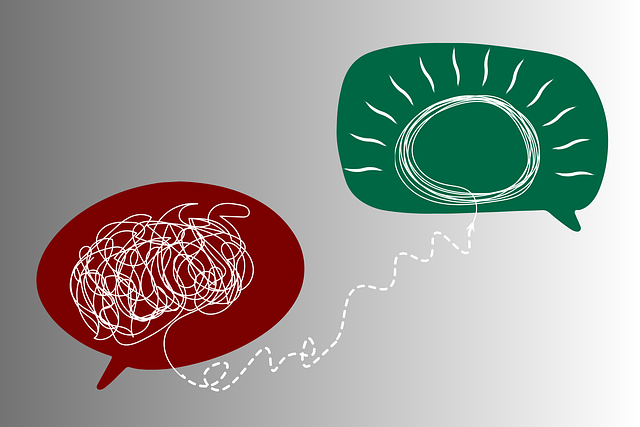Westminster German Speaking Therapy (WGST) offers a unique approach to building resilience through their Resourceful Functioning Model (RFM). This model focuses on coping with stress and adversity by identifying personal resources, strengths, and coping mechanisms. WGST incorporates practical exercises and mindfulness techniques into therapy sessions, empowering clients to manage anxiety, depression, and other mental health concerns. Their specialized services cater to individuals with German-speaking backgrounds, combining cultural sensitivity with evidence-based practices like CBT and DBT. This holistic method enhances mental well-being and contributes to mental illness stigma reduction, making WGST a pioneering force in mental healthcare.
Resilience, the ability to adapt and bounce back from adversity, is a crucial aspect of mental well-being. The RFM (Resource, Fortitude, Mastery) model offers a structured approach to building resilience. This article explores how therapists can integrate RFM principles into therapy sessions through specific exercises, enhancing clients’ coping mechanisms. We delve into the Westminster German Speaking Therapy Approach, known for its innovative methods in fostering resilience. By understanding RFM, practitioners can empower individuals to navigate life’s challenges with greater strength and flexibility.
- Understanding RFM and Its Role in Resilience Building
- Implementing Resilience Exercises in Therapy Sessions
- The Westminster German Speaking Therapy Approach
Understanding RFM and Its Role in Resilience Building

Resilience is a vital asset for navigating life’s challenges, and RFM (Resourceful Functioning Model) offers a structured framework to enhance it. Developed by researchers at Westminster German Speaking Therapy, this model focuses on an individual’s ability to adapt and cope with stress, trauma, or adversity. By understanding one’s resources, strengths, and coping mechanisms, individuals can build resilience, enabling them to face difficult situations head-on.
RFM encourages the development of various skills, including mindfulness meditation for stress reduction methods and social skills training, which are essential components of fostering resilience. It recognizes that a person’s interaction with their environment plays a significant role in building mental fortitude. Through practical exercises and therapeutic interventions, individuals learn to recognize and utilize their personal resources, leading to improved coping strategies and overall well-being.
Implementing Resilience Exercises in Therapy Sessions

In therapy sessions at Westminster German Speaking Therapy, incorporating Resilience Exercises has become an integral part of enhancing client mental health awareness and coping skills development. These exercises are meticulously designed to equip individuals with effective strategies to navigate life’s challenges. By engaging in such practices, clients learn to build resilience, fostering a sense of empowerment that extends beyond the therapy room. Therapists play a pivotal role in guiding this process, tailoring activities to individual needs while also conducting regular risk assessments for mental health professionals to ensure client safety and well-being.
The implementation of these exercises goes beyond mere stress reduction; it empowers clients with tools to manage anxiety, depression, and other mental health concerns. Through interactive and engaging activities, individuals develop a stronger sense of self, improving their ability to cope with difficult situations. This holistic approach, which combines evidence-based practices with a supportive therapeutic environment, sets the stage for long-term mental well-being and resilience.
The Westminster German Speaking Therapy Approach

The Westminster German Speaking Therapy Approach is a unique and innovative method that has gained recognition in the field of mental healthcare. This approach emphasizes the importance of cultural sensitivity, offering specialized therapy services tailored to individuals of German-speaking backgrounds. By understanding the specific needs and challenges faced by this community, the Westminster German Speaking Therapy team provides a safe and supportive environment for clients to explore their mental health issues.
This therapeutic strategy incorporates elements of cognitive-behavioral therapy (CBT) and dialectical behavior therapy (DBT), combining effective evidence-based practices with cultural considerations. The goal is not only to address symptoms but also to foster resilience and promote healing within the context of an individual’s cultural identity. Through this approach, mental healthcare becomes more inclusive and accessible, contributing to the significant progress made in Mental Illness Stigma Reduction Efforts and Public Awareness Campaigns Development. Additionally, it highlights the potential for enhancing Cultural Sensitivity in Mental Healthcare Practice, ensuring that diverse communities receive tailored support.
Resilience is a vital component of mental well-being, and integrating resilience-building exercises (RFM) into therapy sessions can significantly enhance therapeutic outcomes. As demonstrated by the Westminster German Speaking Therapy approach, combining RFM with evidence-based practices creates a powerful tool to help individuals navigate life’s challenges. By understanding RFM and its role in resilience building, therapists can foster a supportive environment that empowers clients to develop coping strategies for long-term mental health success.














